Tracking with the Plastic Pollution Treaty: INC-4 Aftermath, Intersessionals in Thailand, and the Road to INC-5 in South Korea
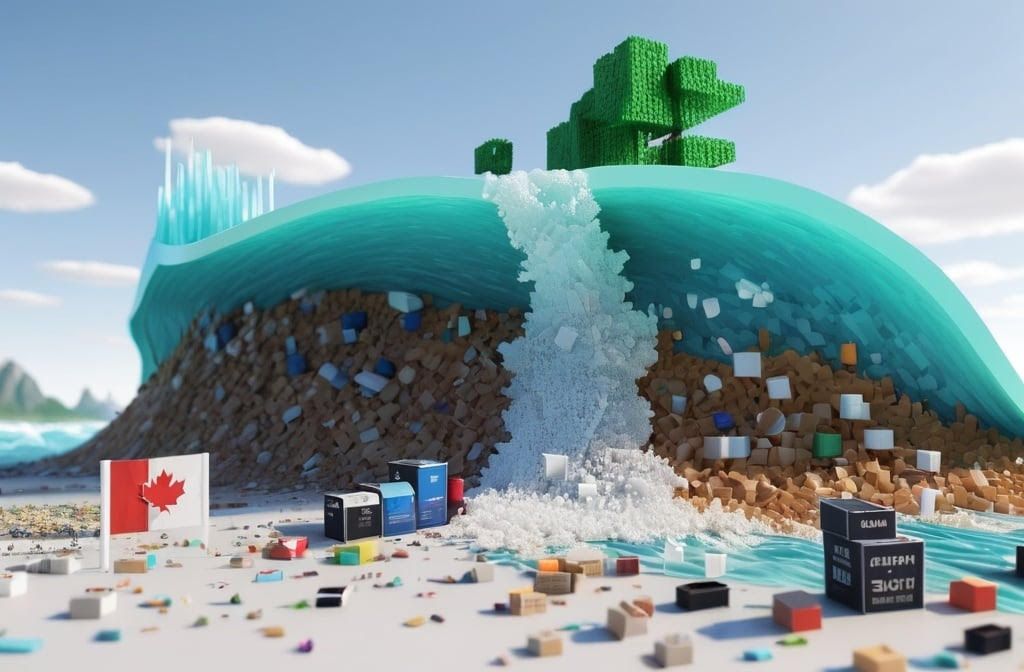
On May 7th, the Ocean Plastics Leadership Network (OPLN) hosted the 4th edition of the INC Digest, bringing together key voices engaged in the negotiations for the Global Treaty on Plastic Pollution. Watch the full recording here.
Since the inaugural INC-1 in Punta Del Este, Uruguay, thousands of stakeholders and representatives from over 35 member states have joined OPLN’s informal multi-stakeholder forum following each negotiation. Despite the absence of a formal mandate for multi-stakeholder engagement in the negotiations, this forum has played a vital role in informing stakeholders across six continents about the evolution of the treaty negotiations.
Last month, our community was honored by the presence of Jyoti Mathur-Filipp, Executive Secretary of the Intergovernmental Negotiating Committee (UNEP), who provided the opening remarks and INC-4 recap ahead of the series of presentations and panels. These sessions aimed to break down the complex treaty process into concise, digestible insights with help from renowned experts.
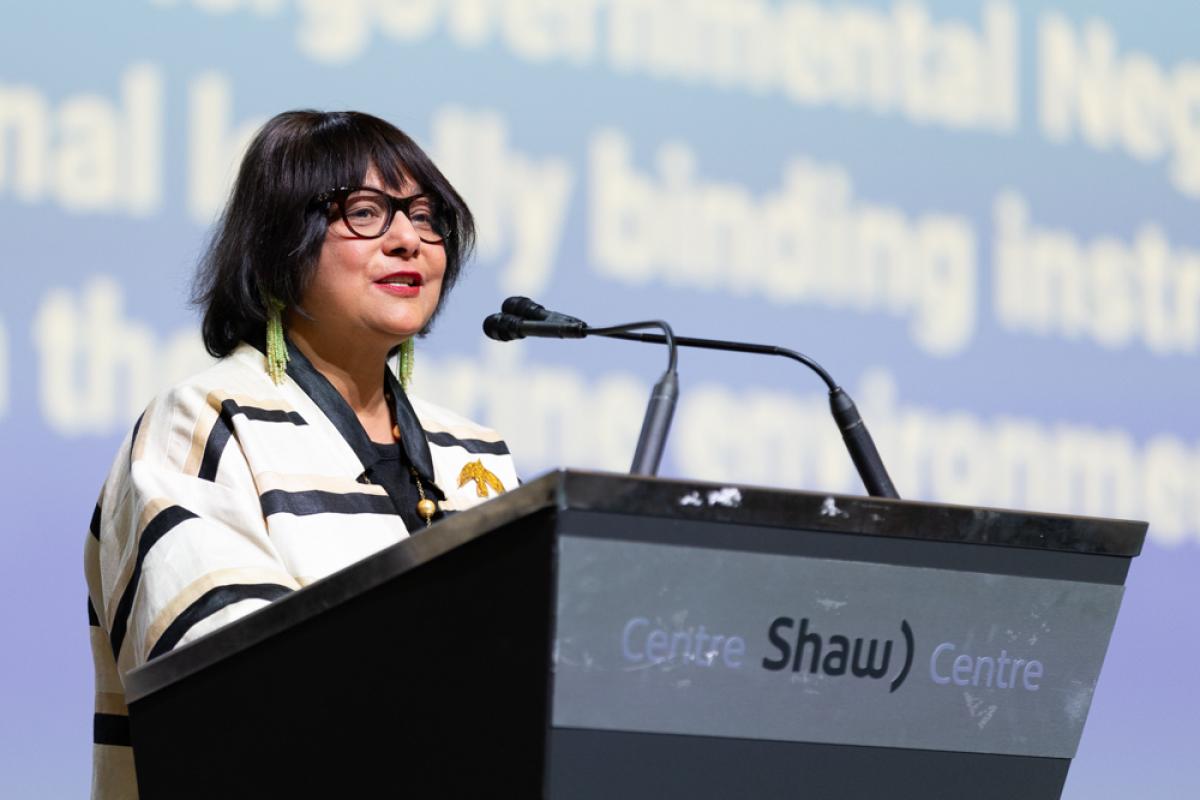
“During the 4th round of negotiations, members of the committee made steady progress in advancing the text of the instrument. Textual negotiations commenced at INC-4 based on the validated text by co-chairs and co-facilitators and at the request of the committee, the Secretariat will issue a compilation document drawn from the 5 non-papers prepared by the INC-4 subgroups which reflect the latest progress of the text…
Also, through active discussions, the committee agreed on a way forward for intersessional work and decided to establish 2 ad hoc intersessional open-ended expert groups. The 1st group will develop an analysis of potential sources and means that could be mobilized for the implementation of the objectives of the instrument and including options for the establishment of a financial mechanism and alignment of financial flows and catalyzing finance. The 2nd group will identify and analyze criteria and non-criteria based approaches with regard to plastic products and chemicals of concern in plastic products and product design focusing on recyclability and reusability of plastic products considering their uses and applications are multiple, but we will all start unpacking that very soon. And this is all for consideration by the committee at its 5th session. In addition, the committee decided to establish an open-ended legal drafting group which will conduct a legal review of any elements of the draft text with a view to ensuring that the text is reflected in a legalIn seven days, a massive amount of work was indeed carried out by the committee. Ottawa, with the involvement of thousands of participants, was larger than any other INC session to date. More than 2,500 delegates attended, representing 170 member states and over 480 observer organizations, including non-governmental organizations, intergovernmental organizations, and UN entities. The participation of observers in the last session increased by almost 50%. I personally felt inspired by meeting many new and previous INC delegates across the halls of the Shaw Centre. The tireless effort that everyone is putting into this work is a true example of the commitment to this process and a pledge to tackle plastic pollution. I am in awe of the non-stop dedication of the delegates of member states and observer organizations, some of whom are here today. Despite the very late hours, you were always present and dynamic in the room.
As we head to the Republic of Korea in November, let me also highlight the continued engagement of all stakeholders in this process. In the spirit of Resolution 514, all stakeholders play a vital role in driving attention to plastic pollution and amplifying the discussions beyond the negotiations. You are at the forefront of the issues. Your voices, including those of the most vulnerable—youth, indigenous peoples, women, and waste pickers—are very much needed.”
Key Points About the Ad Hoc Intersessional Open-ended Expert Groups
1. Inter-sessional Focus Areas: Member states have decided to move forward with inter-sessional work on several critical topics: financial mechanisms, plastic products, chemicals of concern in plastic products, product design, reuseability and recyclability.
2. Scope of Primary Plastic Polymers: Over 50 Countries have advocated for the inclusion of primary plastic polymers within the scope of discussions. However, the consensus on this matter was not reached during the Ottawa session.
3. Leadership: The expert group's work will be co-chaired by Ms. Kate Lynch of Australia and Mr. Oliver Boachie of Ghana, bringing diverse perspectives and leadership to the discussions.
4. Upcoming Meeting: The Open-ended Expert Groups are scheduled to convene in the last week of August in Thailand, where they will continue their crucial work on shaping policies and strategies to combat plastic pollution.
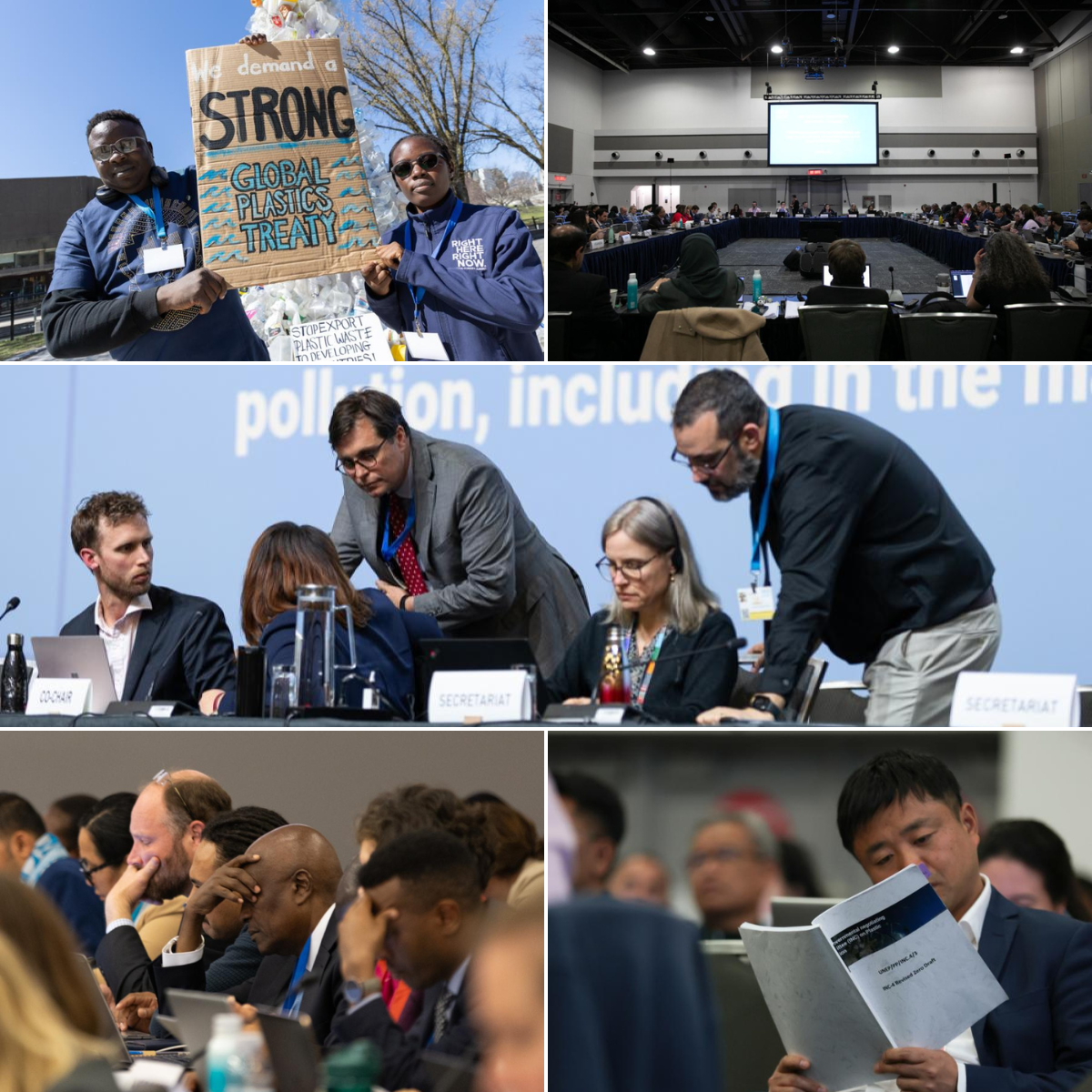
At the INC-4 Digest, Marta Fiscina, CEO of OPLN, moderated a discussion on the most pressing treaty topics, including Bridge to Busan Declaration, primary plastic polymers, problematic and avoidable plastic products, financial mechanisms, and reuse.
The panel featured member state negotiators:
- Dennis Clare - Plastic Pollution Negotiator, Federated States of Micronesia
- Dr. Julius Piercy - UK Lead Negotiator on Plastic Pollution Treaty
- Danny Rahadiansyah - Deputy Permanent Representative, UNEP Indonesia
- Anama Solofa - Lead Negotiator - Oceans (AOSIS), Samoa
- Larke Williams - Lead Plastic Pollution Negotiator, United States
The Gist of It: Bridge to Busan - A Primary Plastic Polymers Declaration
Dennis Clare, Plastic Pollution Negotiator for the Federated States of Micronesia, represented one of the 34 signatories of The Bridge to Busan. He provided valuable insights into why this declaration is a critical one to track.
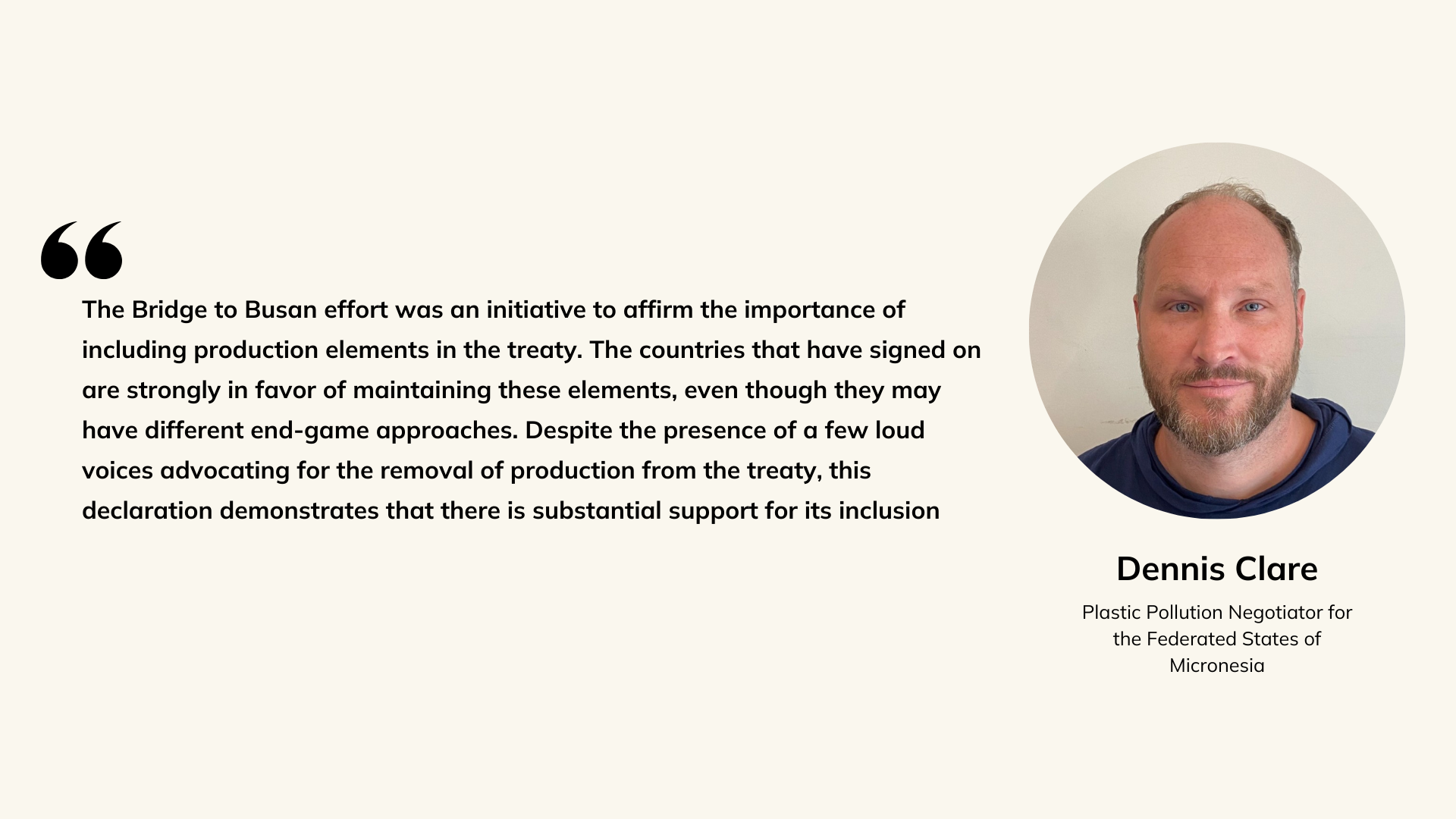
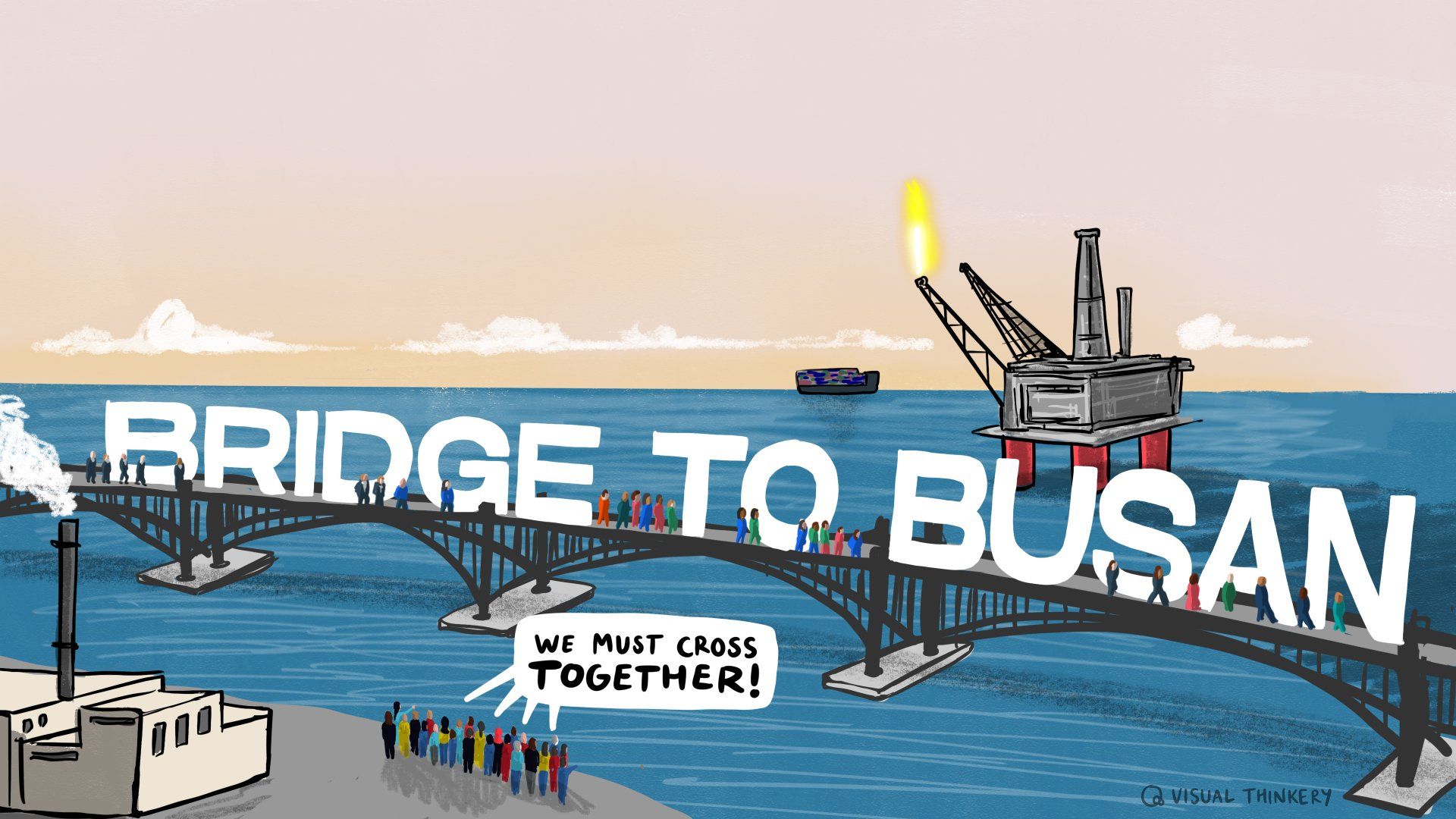
Global & National Priorities on Product Design, Reusability, and Recyclability
Dr. Julius Piercy, the UK Lead Negotiator on the Plastic Pollution Treaty, provided insights on the UK's perspective regarding product design and material substitutions ahead of the critical intersessional work scheduled for August 2024 in Thailand.
Dr. Piercy emphasized the importance of product design, stating:
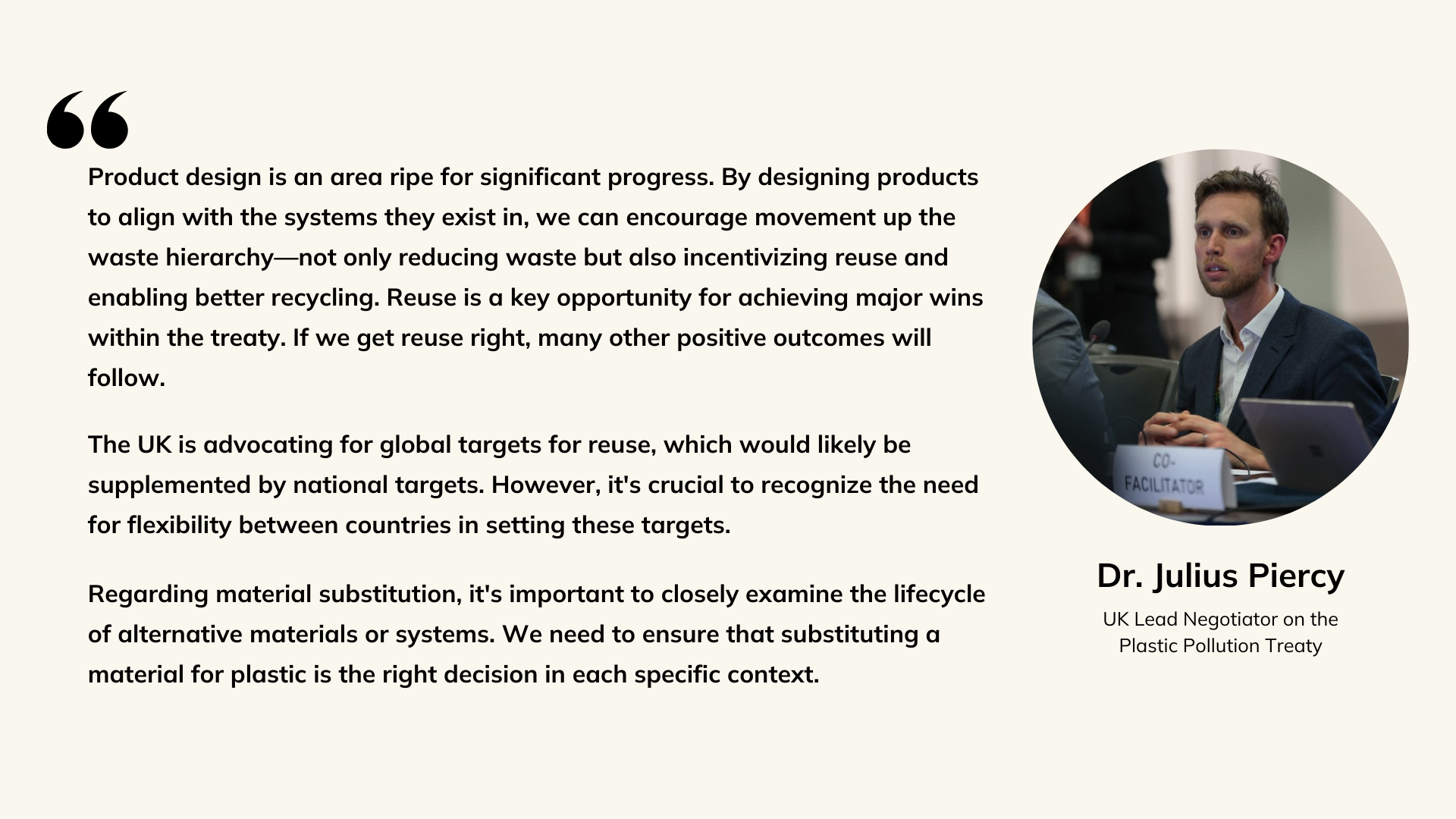
The Call for Science
Larke Williams, Lead Plastic Pollution Negotiator for the United States, shared the perspective of the US State Department on leveraging existing frameworks to craft effective and legally binding treaty text.
She emphasized important lessons learned from the Montreal Protocol, particularly how science-based targets can lead the way.
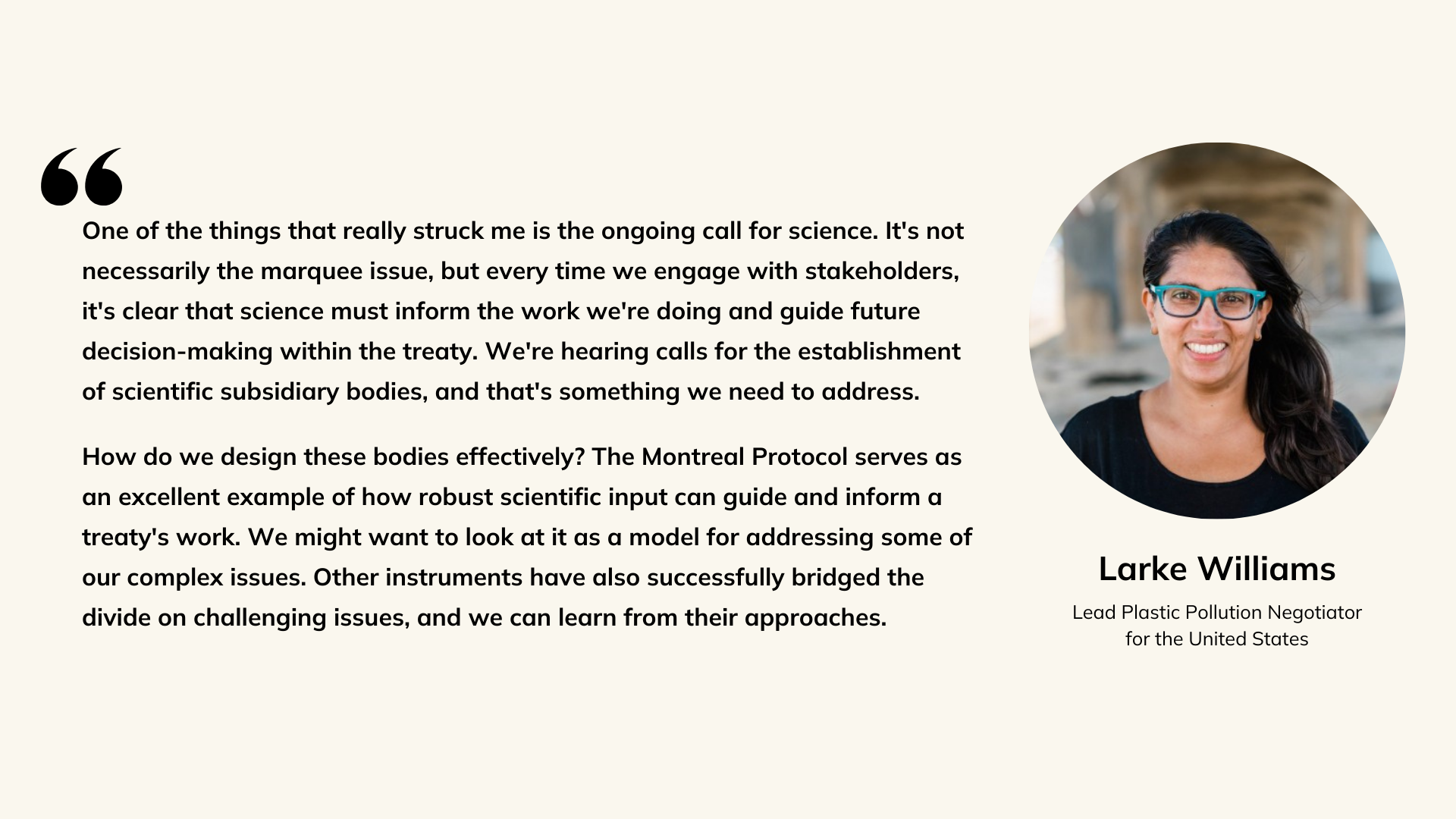
About The Montreal Protocol
37 years ago, scientists and policymakers unveiled what the United Nations calls “the most successful treaty in UN history.” On September 16, 1987, the first 24 nations signed on to the Montreal Protocol on Substances that Deplete the Ozone Layer; 173 more have signed on in the years since. The international agreement likely saved the world from an environmental crisis, while setting an example for how to develop and implement environmental policy.
Figure 1. Maximum ozone hole extent over the southern hemisphere, from 1979 to 2023
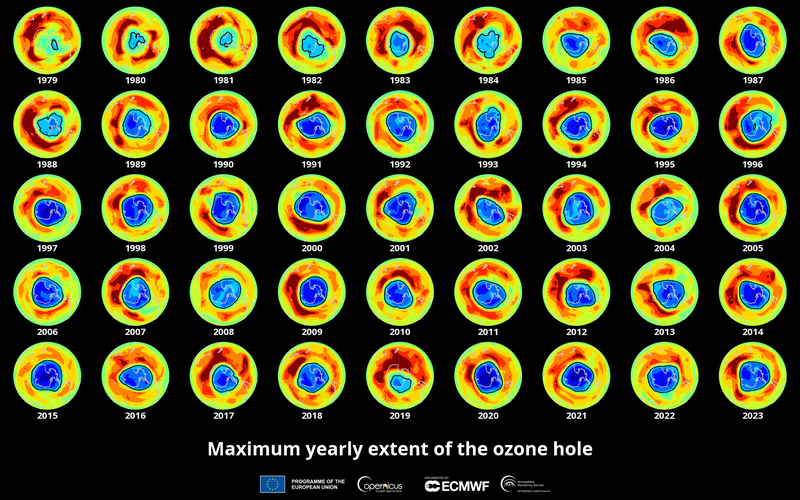
Prompted by scientific observations from the laboratory, the ground, aircraft, and satellites, the Montreal Protocol first reduced and then banned the chlorine- and bromine-based chemicals (particularly chlorofluorocarbons, or CFCs) that destroy atmospheric ozone. The destruction of the ozone layer allows more of the Sun’s ultraviolet radiation to reach the surface of the planet, increasing the risk of sunburns, skin cancer, and eye damage. The most prominent and infamous sign of depletion is the annual “ozone hole” that forms around the South Pole.
Message from SAP - Supporting Partner
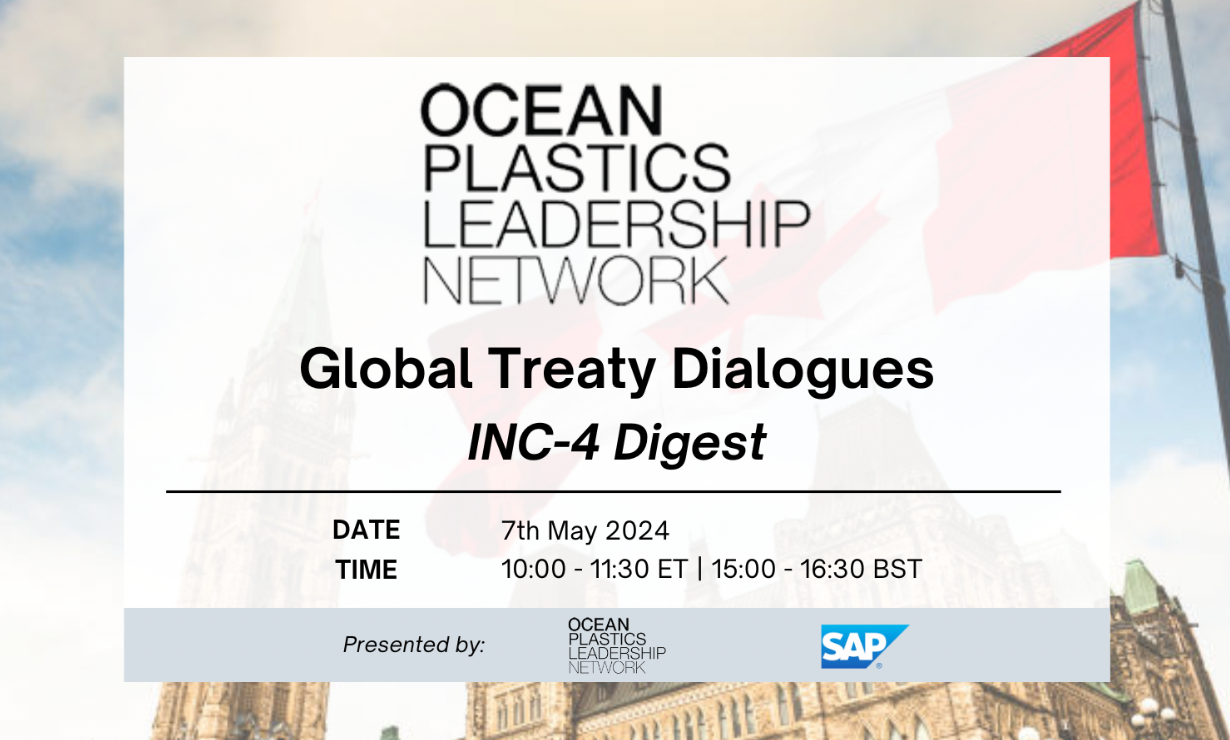
The UN Plastics Treaty represents a unique opportunity to mobilize world leaders, businesses, and communities around a common goal and action plan to bring plastic use within planetary boundaries and eliminate the plastic pollution wreaking havoc our planet.
As the provider of technology systems underpinning 88% of the world’s commerce, SAP is committed to delivering the digital solutions and innovations needed to enable the goals of the treaty at scale.
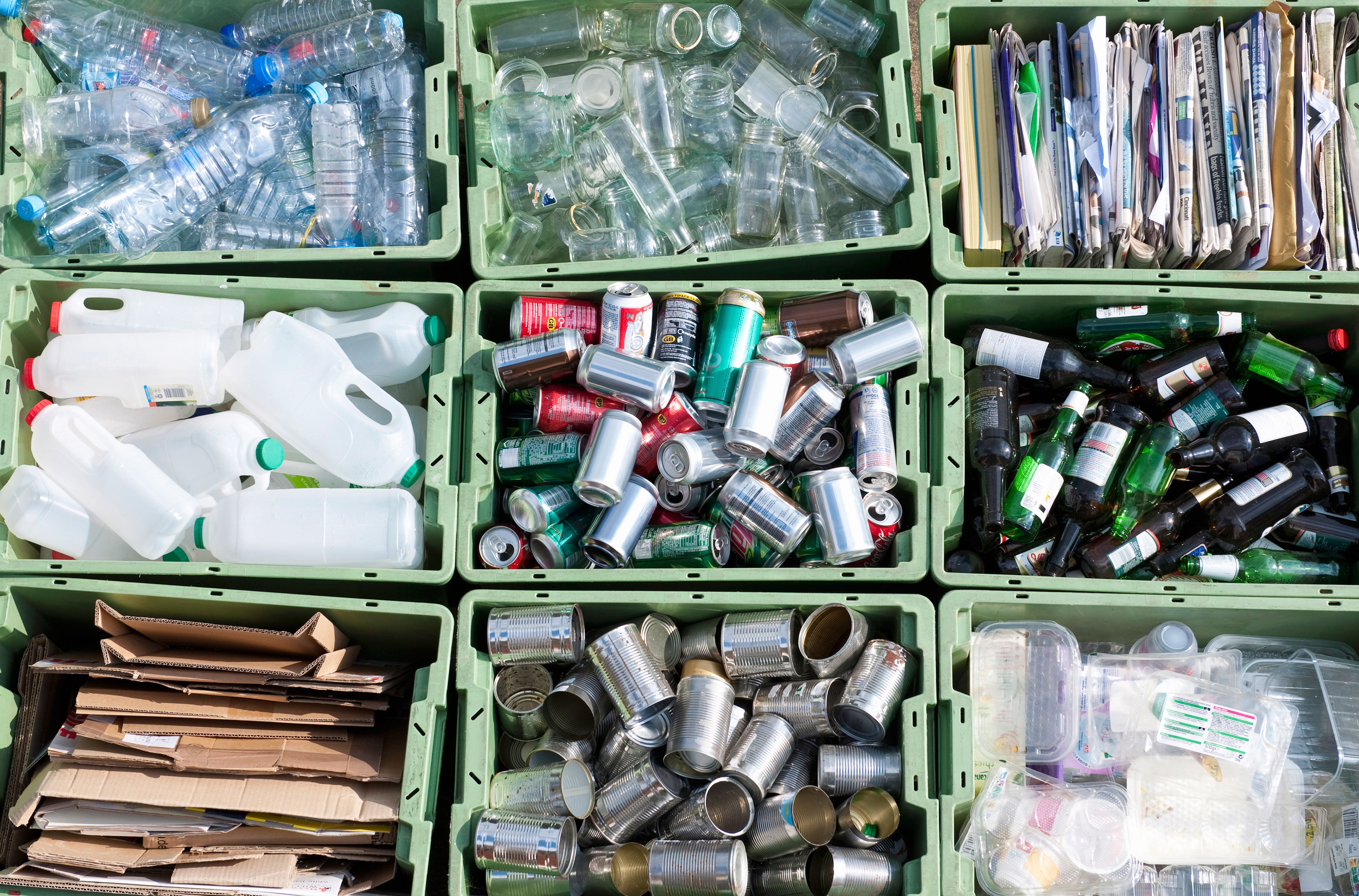
SAP is a long-term partner to the Ocean Plastics Leadership Network and has greatly benefited from learning, collaborating, and co-innovating on ideas within the Network. As a result, SAP's approach to developing technical solutions to advance the circular economy also focuses on ensuring businesses are ready to take on the challenges and opportunities that such a landmark treaty will represent. SAP Responsible Design and Production helps businesses navigate new regulations, standardize the approach to material measurement, support design processes that enable innovation and unlock solutions that will be sustainable for the long term.
We look forward to continuing our partnership and doing our part to see that plastic never becomes waste or pollution, and the value of products and materials is retained in the economy, as stated by Stephen Jamieson, Global Head of Circular Economy solutions at SAP.
Visit www.sap.com/circular-economy to find out more about SAP’s circular economy software solutions and learn how SAP Responsible Design and Production can help your business transition to more sustainable products and packaging.